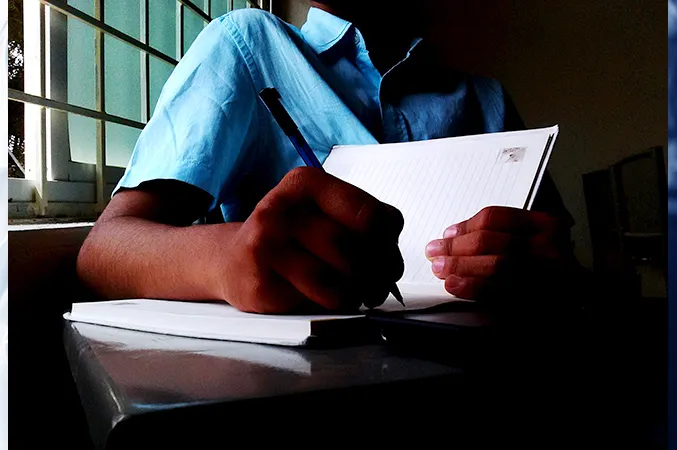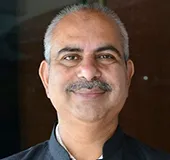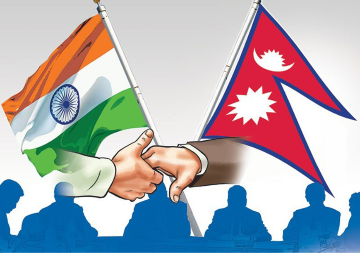
Rajasthan government’s move to revise class X text books has once again underlined how India’s political parties relish exercising there might — when in power to further their ideological footprints. The frequent changes in the textbooks is a fit case indicating what ails the country’s education system.
The newly appointed Congress governments in Madhya Pradesh, Rajasthan and Chhattisgarh are on a unique “detoxification” drive. They are busy purging textbooks and school syllabus of bias and Hindutva revivalism.
“Education is political,” says renowned educationist Anil Sadgopal. “Each time a BJP government was formed in the Indian Union, an attempt was made to give an ideological slant to education. As a consequence, each time a Congress, Left or centrist regime comes to power, a renewed effort has to be made for a course correction,” explains Professor Sadgopal, who was part of the Central Advisory Board of Education of the Union government. Sadgopal insists that frequent changes in textbooks create confusion and chaos for students. These periodical changes also put teachers in piquant situation as to why year old textbooks may be saying something else, and the new textbook mentioning a reverse of it. Many school going students often rely on old, second hand textbooks which are cheaper, and easily available. As a result, teachers end up explaining formations where there are no easy explanations.
Frequent changes in textbooks, particularly those dealing with the country’s history and culture have been a near obsession with political parties in India. When Narendra Modi was elected as prime minister of India in May 2014, central level departments of education and culture were quietly working on a programme to emphasise on various archaeological findings and DNA evidence to to prove that today’s Hindus are directly descended from the land’s first inhabitants many thousands of years ago. A concerted bid has also been made to assert that ancient Hindu scriptures are fact and not myth. This line of thinking has been articulated by several union ministers and by scholars at Indian History Congress, Indian Science Congress and such forums. Many Congress leaders like Mani Shankar Aiyar, Shashi Tharoor, Salman Khurshid and Manish Tiwari feel the idea behind these attempts is to showcase a “national identity” that identifies with religion and build a political narrative that India is a nation of and for Hindus only.
Frequent changes in textbooks, particularly those dealing with the country’s history and culture have been a near obsession with political parties in India.
The Congress, that ruled India at the federal level and in many states for about five decades, faces charge that it used left-leaning historians to write history in such a way that gave blinkered view of Indian historiography. For instance, a somewhat reductionist approach viewing the evolution of Indian society through the prism of the caste system was adopted, neglecting those of integration; without which Indian society would have disintegrated long ago. The right wing narrative accuses Congress and Left of erasing India’s knowledge systems in the field of philosophy, linguistics, literature, science, medicine, technology and arts. The Congress-Leftist schools are blamed for being a faithful inheritor of colonial historiography.
In any multicultural society, writing history, particularly about social cohesion is not easy. The textbooks needs to transcend prejudice and help students deal with past social and political problems. It is never an easy task. Studies in Japan, South Africa and elsewhere have shown that even knowledgeable students often struggle to how certain events shape contemporary society. Still we need to learn a lot from these studies and experiences.
Rajasthan Education Minister Govind Singh Dotasra justifies the changes in school text books. He has been quoted in media as saying that the previous Vasundhara Raje Scindia led BJP government had “glorified” Veer Savarkar. When the Congress got voted to power in December 2018, the Ashok Gehlot regime set up a text book review committee. The panel found “strong evidences and facts” that previous BJP government had “glorified” personalities such as Vinayak Damodar Savarkar and Deendayal Upadhyay who were Hindutva-RSS ideologues.
When the Congress got voted to power in December 2018, the Ashok Gehlot regime set up a text book review committee.
Savarkar was a freedom fighter who spent considerable time in dreaded Cellular Jail in Andaman. Rajasthan’s textbook review committee set up by the present Congress government, however, has decided to give weightage to the fact that Savarkar had applied to the British for clemency on four occasions therefore he did not deserve a honorific “Veer” before his name. It is in this context that Congress government’s efforts, such as that of Rajasthan government to “detoxify” textbooks, assumes significance beyond a mere issue of adding or deleteing a honorfic “Veer” before Savarkar.
In the three Congress ruled states of Madhya Pradesh, Rajasthan and Chhattisgarh, chief ministers of Rajasthan and Chhattisgarh seem most eager to bring in changes in the text book. In Chhattisgarh, Bhupesh Baghel has instructed state education minister Premsai Singh Tekam to clean up textbooks that offer a dominant Hindu majoritarian world view, often at the expense of facts and accuracy. Vinod Verma, political adviser to Baghel and formerly a journalist with the BBC World Service, says the new government in Raipur is looking for a curriculum that is based on the concept of learning without burden as envisaged by the Prof Yashpal committee. “We would like to teach our young generation unbiased history. We also wish to encourage scientific temper, rationality and inclusive outlook in students’ thought process,” he said while justifying the Chhattisgarh government’s move to consult experts across the country to form a committee which will review and scrutinise textbooks, syllabus and curriculum. Verma points out that other than “saffronisation” of textbooks, school curriculum under 15 years of the BJP’s Dr. Raman Singh had many howlers and inaccuracies that require correction. For instance, a class X social science textbook published by the Chhattisgarh Board of Secondary Education, had observed that unemployment spiralled after Independence as more women started working. “Before Independence, few women were employed. But today, women are employed in all sectors that has increased the proportion of unemployment among men,” the social science textbook in Chattisgarh read. Baghel and Verma say they need to find a way on tackling the tricky issue of RSS-affiliated private school chains like Vidya Bharati having their own curriculum. Samples from Sanskriti Gyan Pariksha, or cultural knowledge, go like this:
Q. Which Mughal invader destroyed the Ram temple in 1582?
A. Babur
Q. From 1582 till 1992, how many Ram bhakts sacrificed their lives to liberate the temple?
A. 3,50,000
In Jaipur, Chief Minister Ashok Gehlot and Education Minister Govind Singh Dotasara determined to “restore” roles of national icons such as Mahatma Gandhi and Jawaharlal Nehru.
Among the three formerly BJP-ruled states, Rajasthan had perhaps taken the most ‘creative liberties’ to reinforce a Hindutva revivalist agenda and attempt to erase Muslim identity. In history textbooks, for instance, Prithviraj Chauhan is called the king “who defeated Bharat’s invader, Mohammad Ghori several times.” In February 2017, state education minister Vasudev Devnani had supported a proposal to teach children an alternative version of history. He had insisted that in the battle of Haldighati in 1576, Maharana Pratap defeated Mughal emperor Akbar, and not the other way round, as the history books suggest. “We have maintained all along that Maharana Pratap has not been accorded his due place in history,” Devnani had boasted. Even the seemingly innocuous title of a chapter Ajmer ki Sair was changed to Ajmer ki Yatra.
Among the three formerly BJP-ruled states, Rajasthan had perhaps taken the most ‘creative liberties’ to reinforce a Hindutva revivalist agenda and attempt to erase Muslim identity.
In a class VIII book, the practice of ‘Sati’ was described in glowing terms. A Rajasthan school textbook referred to the Indus Valley civilisation as the Sindhu Ghati Culture. And Aryans were described as “natives” of India, though credible historians say that Aryans had migrated to India.
In May 2016, the Vasundhara Raje government had dropped Jawaharlal Nehru’s name as the country’s first prime minister from class VIII textbooks. Sachin Pilot, who was heading the Congress unit in Rajasthan, had reacted sharply to it and told the media: “This is taking saffronisation to the next level. The BJP’s ideological bankruptcy has stooped to such levels that it is erasing the country’s first prime minister from school history books. But they should know that this does not mean they can erase Nehru’s memory and his contribution from the nation’s collective conscience.”
Pilot, who is now deputy chief minister of Rajasthan, says the new government is merely “restoring” what was there in previous books, giving Nehru and Gandhi due representation.
Dotasara claims these revisions were carried out as part of “curriculum re-structuring” by the State Institute of Education Research and Training (SIERT), Udaipur. “We are also examining how SIERT had functioned,” he said, adding, “We are also reviewing the appointment of RSS-backed officers in various boards and councils.”
In Madhya Pradesh, Chief Minister Kamal Nath reportedly wants to go slow till the completion of the Lok Sabha polls. The CM has asked state chief secretary S.R. Mohanty to prepare “grounds” for revision of textbooks and syllabus, and enforce changes from the next academic session beginning in June-July.
MP’s school education minister Prabhuram Choudhary said there is a need for “course correction.” “There are some glaring and disturbing trends in school curriculum that need to be corrected.” Choudhary said, he was surprised to learn how the previous Shivraj Singh Chouhan regime had sought to pack “political propaganda” in school education and even set up an “Itihaas Sankalan Punarlekhan Samiti,” effectively to rewrite history.
The views expressed above belong to the author(s). ORF research and analyses now available on Telegram! Click here to access our curated content — blogs, longforms and interviews.




 PREV
PREV


